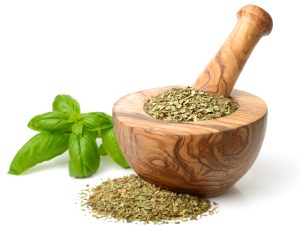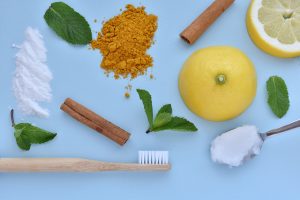Introduction
Ayurveda, the ancient Indian system of medicine, has a long history of using natural and herbal remedies for various health issues. One such area of focus is oral hygiene, and in recent years, the use of Ayurvedic tooth powder and paste has gained popularity in India as a natural alternative to conventional toothpastes.
What are Ayurvedic Tooth Powder and Paste?
Ayurvedic tooth powder and paste are oral hygiene products that are made from a combination of herbal ingredients and follow the principles of Ayurveda, the ancient Indian system of medicine. They are designed to clean teeth, freshen breath, and promote overall oral health. Unlike conventional toothpastes, they are often free from harsh chemicals and artificial ingredients and instead rely on natural ingredients like neem, clove, fennel, peppermint, and basil to clean and protect the teeth and gums. The use of Ayurvedic tooth powder and paste is growing in popularity as a natural and safe alternative to traditional toothpastes.
Benefits of Using Ayurvedic Tooth Powder and Paste
Using Ayurvedic tooth powder and paste can provide a number of benefits for oral health, including:
- Gentle cleaning: Ayurvedic tooth powders and pastes are made with natural ingredients and are typically gentler on the teeth and gums compared to conventional toothpastes. This makes them ideal for people with sensitive teeth or gums.
- Promotes oral health: Many Ayurvedic tooth powders and pastes contain herbs like neem and clove, which have antiseptic and antimicrobial properties that can help prevent plaque buildup, gum disease, and other oral health issues.
- Fresh breath: Ingredients like fennel, peppermint, and basil can help freshen breath and promote a healthy oral environment.
- Chemical-free: Ayurvedic tooth powders and pastes are often free from harsh chemicals like sodium lauryl sulfate, which can cause irritation and dry mouth. They are also free from artificial preservatives, flavors, and colors.
- Environmentally friendly: Many Ayurvedic tooth powders and pastes come in packaging that is biodegradable, making them a more environmentally friendly option compared to conventional toothpastes.
Ingredients and their Benefits for Oral Health
Common ingredients found in Ayurvedic tooth powders and pastes, and their benefits for oral health include:
- Neem: Neem is a tree native to India and has been used in Ayurveda for its antibacterial and anti-inflammatory properties. It can help fight plaque buildup, gum disease, and bad breath.
- Clove: Clove has a long history of use in traditional medicine and has strong antiseptic and anesthetic properties. It can help relieve toothache and promote overall oral health.
- Fennel: Fennel has a sweet, licorice-like flavor and is known for its breath-freshening properties. It can also help stimulate saliva production, which can protect against tooth decay.
- Peppermint: Peppermint is a natural antiseptic and has a fresh, cool flavor that can help freshen breath.
- Basil: Basil has antibacterial properties and can help fight plaque buildup and gum disease.
- Cinnamon: Cinnamon has anti-inflammatory and antimicrobial properties that can help improve oral health and freshen breath.
- Baking soda: Baking soda is a gentle abrasive that can help remove surface stains and promote a healthy oral environment.
- Calcium carbonate: Calcium carbonate is a common ingredient in Ayurvedic tooth powders and can help remove surface stains and strengthen tooth enamel.
How to Use Ayurvedic Tooth Powder and Paste
Using Ayurvedic tooth powder and paste is similar to using conventional toothpaste, but there are a few differences to keep in mind:
Wet your toothbrush: Wet your toothbrush with water before dipping it into the powder or applying the paste to the bristles.
Apply the product: If you’re using a powder, dip your toothbrush into the powder and tap off any excess. If you’re using a paste, apply a pea-sized amount to the bristles of your toothbrush.
Brush your teeth: Brush your teeth for two minutes, focusing on all surfaces of your teeth and gums. Spit the product out into the sink and rinse your mouth with water.
Store the product properly: If you’re using a powder, store it in an airtight container to keep it fresh. If you’re using a paste, store it in a cool, dry place and use it within the recommended time frame to ensure its effectiveness.
Conclusion
In conclusion, Ayurvedic tooth powders and pastes have a long history of use in traditional Indian medicine and are becoming increasingly popular in modern times. These products offer a natural alternative to conventional toothpastes and can help promote oral health through the use of natural ingredients such as neem, clove, fennel, peppermint, basil, cinnamon, baking soda, and calcium carbonate.
When used as directed, Ayurvedic tooth powders and pastes can help fight plaque buildup, gum disease, bad breath, and tooth decay. They can also freshen breath and improve overall oral health. However, it’s important to choose a product that contains ingredients that are appropriate for your individual needs and preferences and to follow the instructions on the packaging.



